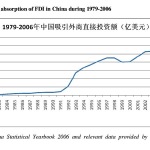ISSA Proceedings 2002 – Cut-Ups, Slams And Jabs: Verbal Aggressiveness Or Politeness?
 There is no such thing as human nature independent of culture.
There is no such thing as human nature independent of culture.
(Geertz, 1973, p. 49)
What does it mean to be a “polite,” “supportive,” “non-aggressive” interpersonal communicator? What is the significance behind communicators who engage in ways of speaking that explicitly contradict traditional ways of interpersonal “competence” and, yet, construct and maintain group solidarity? The intersection of these questions is where I locate the Upward Bound case.
In this essay, I explore the ways of speaking of the Upward Bound speech community. Upward Bound is a government-assisted program that gives high school students from poor socioeconomic statuses the opportunity to earn early college credit for free. A goal of this program is to allow for the student to make a smooth transition into college once they graduate from high school, and then to boost their level of preparation and thus success once in the college setting. In order to qualify for the program, students must come from low-income households, and households in which the parent/s do not hold a college degree. Group members were familiar with one another, as they had spent the last three years in the program together.
Through my fieldwork, I realize that these students use talk in culturally distinctive ways. Their communication styles illustrate a norm of “politeness” that is strikingly antithetical to the germinal “politeness” universal proposed by Brown and Levinson (1987) and valorized widely by scholars who study interpersonal communication. As a result of this discovery, I begin to problematize the notion of “Politeness Theory” and normative theories pertaining to “defensiveness” and “verbal aggressiveness” and communication scholars reliance on linguistic universals in general.
The following study is an attempt to “reverse” my scholarly ways. Following Pike’s (1954) lead, I use an emic (rather than etic) approach to focus more on the reports of the participants and to let conclusions emerge from the data. In line with Philipsen’s (1977) discussion on “linearity” in research protocol, I begin this analysis with some theory in mind (e.g., “Politeness Theory”). In this sense, I am curious about how this speech community enacts “politeness,” “defensiveness,” and “verbal aggression.” However, I make a deliberate move to first discover this group’s (potentially distinctive) methods of communicating prior to employing (i.e., embracing and/or challenging) traditional theory. Read more
ISSA Proceedings 2002 – Table of Contents
Table of Contents ISSA Proceedings 2002 – work in progress
Frans H. van Eemeren, J. Anthony Blair, Charles A. Willard (eds.) – Preface
Alan W. Aldrich – Considering Culture In The Analysis Of Arguments
R. P. Alford – Leff’s Account Of The Aristotelian Roots Of The Boethian Theory Of Dialectical Reasoning: A Contemporary Reconsideration
Ruth Amossy – The Argumentative Dimension Of Discourse
Richard Andrews – Argumentation In Education: Issues Arising From Undergraduate Students’ Work
Constantin Antonopoulos – On The Use And Misuse Of Analyticity In Arguments
Satoru Aonuma – The Constitution, Critical Rhetoric, And Public Argument: The Case Of Democratic Japan
Peter D. Asquith – Cases – Their Role In Informal Logic
Albert Atkin & John E. Richardson – Constructing The (Imagined) Antagonist In Advertising Argumentation
Txetxu Ausín & Lorenzo Peña – Arguing From Facts To Duties (And Conversely)
Kevin T. Baaske & Patricia Riley – In Defense Of The Realm: Administrative Responses To Anti-Globalization Argumentation
Michael Baker, Matthieu Quignard, Kristine Lund – UMR 5612 GRIC, Groupe de Recherches sur les Interactions Communicatives, Équipe Interaction & Cognition, C.N.R.S. & Université Lumière Lyon 2 & Marije van Amelsvoort – Department of Educational Sciences, Utrecht University – Designing – A Computer-Supported Collaborative Learning Situation For Broadening And Deepening Understanding Of The Space Of Debate
Susan Balter-Reitz – She Blinded Me With Science: Material Argument In The Indianapolis Children’s Museum
Gregory Bassham – Linked And Independent Premises: A New Analysis
Shawn Batt – The National Education Reform Debate And The Rhetoric Of The Contrarians
Sandra Bégoin-Augereau & Josiane Caron-Pargue – Linguistic Criteria For Demarcation And Hierarchical Organization Of Episodes In A Problem Solving Task
Hilde van Belle – Two Ways Of Analysing A ‘Light Mix’ Newspaper Article
Keith Berry – Cut-Ups, Slams And Jabs: Verbal Aggressiveness Or Politeness?
Stefano Bertea – Legal Argumentation Theory And The Concept Of Law
Barbara A. Biesecker – Technologies Of Truth And National Trauma: Revisiting The Enola Gay Controversy
Frans A.J. Birrer – Expert Advice And Discourse Coupling: Context-Dependent Valdation Of Model-Based Reasoning
V. William Balthrop & Carole Blair – – Discursive Collisions: A Reading Of “Ellen’s Energy Adventure”
J. Anthony Blair – The Relationships Among Logic, Dialectic And Rhetoric
George Boger – Formal Logic’s Contribution To The Study Of Fallacies
Lilit Brutian – On The Pragmatics Of Argumentative Discourse
Andrew J. Burgess – Religious Argument As Enthymeme: Aristotle, Paul, And Anselm
Ann E. Burnette & Wayne L. Kraemer – Making The Case For War: Bush’s Rhetorical Validation Of America’s Action
Read more Read more


